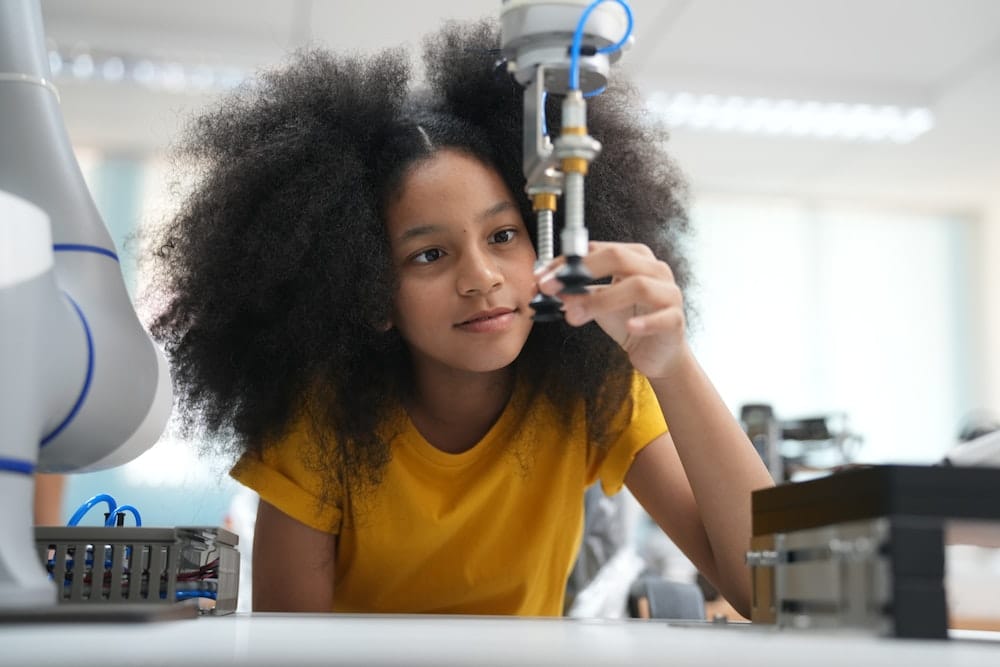Artificial Intelligence (AI) has increasingly become an indispensable component of the modern world. It’s making waves in various industries, from healthcare to transportation, and now, it’s making a significant impact on the video and film production industry. The application of AI in this creative field is opening up new opportunities, from speeding up the production process to creating more engaging content. But what exactly is the potential of AI in enhancing film and video production techniques?
The Power of AI in Video Production
One of the sectors that has seen significant change due to the integration of AI is video production. The use of AI in video production is transforming the way we edit, create, and distribute videos. It’s also offering the potential to save enormous amounts of time, which, as professionals in the industry will tell you, is a precious resource.
Cela peut vous intéresser : Can AI-Driven Analysis Offer Solutions to Tackle Climate Change?
AI tools for video production equipped with machine learning have the potential to automate labor-intensive tasks such as editing and color grading. You can now feed hours of raw footage into AI software, specify the kind of content you’re looking for, and the software will pick out the best shots for you, significantly reducing the time spent on the editing phase.
AI can also streamline the process of creating video thumbnails, optimizing them to attract more viewers. It does this by analyzing vast amounts of data to determine what type of images and texts are most likely to generate clicks.
A lire en complément : How Are Autonomous Systems Being Integrated into Public Service and Infrastructure Maintenance?
The Role of AI in Film Production
When it comes to filmmaking, the potential of AI extends beyond production to scriptwriting and casting. AI is capable of analyzing past data to predict the success of a film on a variety of factors, like genre, plot, and cast.
AI can also assist in the scriptwriting process. It can analyze thousands of scripts to understand what types of stories, characters, and dialogues are most likely to resonate with audiences. From this data, AI can generate suggestions for improving a script, offering valuable insights to filmmakers.
The use of AI doesn’t stop there. It’s even being used to help with casting decisions. By analyzing social media data and past box office performances, AI can help determine which actors are best suited for a role, potentially increasing the film’s chances of success.
AI and Content Creation
Artificial intelligence isn’t just revolutionizing the process of production; it’s also changing the way we create content. Content creation is an integral part of the filmmaking and video production process. Using AI, we can create content that is more targeted, personalized, and engaging.
By analyzing vast amounts of data from past films and videos, AI can generate insights into what types of content are likely to resonate with audiences. This ability can help creators to produce content that is more likely to engage viewers and generate a positive response.
AI can also assist in the actual process of content creation. There are AI tools available that can generate scripts, create animations, and even compose music. These tools can help to streamline the content creation process, allowing creators to focus on the more creative aspects of their work.
AI’s Impact on the Learning Curve in Film and Video Production
As AI continues to evolve, it’s also making the film and video production industry more accessible. With AI tools making the production process simpler and more efficient, the steep learning curve traditionally associated with film and video production is gradually flattening.
AI takes care of the technical tasks, allowing you to focus on the creative side of things. With AI handling aspects like editing, color grading, and even scriptwriting, you can spend more time on the creative process, exploring new ideas and pushing the boundaries of what’s possible in film and video production.
Another significant impact of AI is on training and development within the industry. AI-powered tools can provide a wealth of data and insights, supporting the learning and development of professionals in the industry. By analyzing past work, AI tools can highlight areas for improvement, suggesting ways to enhance future productions.
The Human and Artificial Intelligence Collaboration in Film and Video Production
The integration of AI in film and video production isn’t about replacing human creativity and talent. Instead, it’s about enhancing it, offering tools and technologies that can streamline processes, generate insights, and free up time for more creative tasks.
AI can take on the more repetitive and time-consuming tasks, leaving the more creative and complex tasks to humans. It’s a collaborative effort, where AI and humans work together to push the boundaries of what’s possible in film and video production.
AI is also helping to democratize the film and video production industry. With AI tools becoming more accessible and affordable, more people can now create high-quality videos and films. This democratization is opening up opportunities for a more diverse range of voices and perspectives in the industry.
In a nutshell, the potential of AI in film and video production is vast and continually evolving. As technology continues to advance, the union of AI and human creativity in this realm is proving to be a game-changer, creating exciting opportunities for innovation and growth in the industry. It’s an era filled with possibilities, and we can’t wait to see where it leads.
AI’s Contribution to Enhancing Visual Effects
Artificial intelligence has proven to be a valuable tool in enhancing visual effects in video and film production. Today’s audiences demand high-quality visual content, and AI is helping to meet this demand.
AI technology can assist in creating realistic visual effects, which can greatly enhance the overall quality and appeal of the content. It achieves this by analyzing large amounts of data to understand and replicate realistic physical behaviors and effects. For example, machine learning algorithms can simulate lifelike movements and reactions in animated characters, making them appear more realistic to viewers.
Furthermore, AI can also be used in pre-production stages to create detailed and realistic storyboards. This not only helps in visualizing the final product but also saves time as it reduces the need for manual sketching.
AI’s role in refining visual effects isn’t limited to creating realistic animations. It also plays a vital role in post-production processes like color grading. An AI-powered color grading tool can analyze each frame of a video and automatically adjust color levels to achieve the desired mood and aesthetic. This not only increases the speed of the post-production process but also ensures a high quality and consistent aesthetic throughout the video.
Moreover, AI can identify and rectify issues in visual effects in real-time, a feature that was impossible with traditional video editing tools. It can spot and correct imperfections like lighting inconsistencies and color imbalances, significantly improving the final product’s quality.
The Future of AI in Film and Video Production
The future of AI in the film and video production industry is undoubtedly promising. While we’ve already seen many benefits of AI, the potential for the technology is vast, considering its continuous evolution.
One of the most exciting prospects is the potential for AI to democratize the film and video production industry further. As AI tools become more sophisticated and accessible, they will lower the barriers to entry for aspiring filmmakers and video producers. This will lead to a more diverse range of voices and perspectives being represented in film and video content.
AI’s potential to automate time-consuming tasks will also continue to grow. From scriptwriting to casting, from pre-production to post-production, AI could streamline every part of the video production process. This will save time and resources, allowing creatives to focus on telling compelling stories and creating engaging content.
The role of machine learning in customizing video content for individual viewers is another exciting possibility. By analyzing viewer behavior and preferences, machine learning algorithms could create tailored content, increasing viewer engagement and satisfaction.
However, as we embrace the potential of AI, it’s also crucial to bear in mind that it should be used as a tool to enhance human creativity, not replace it. Filmmaking is an inherently human art form, and while AI can streamline the process and enhance the technical quality of the material, the stories’ heart and soul will always come from human creators.
To conclude, the potential of artificial intelligence in enhancing film and video production techniques is vast. From speeding up the production process to creating more engaging, high-quality content, AI is poised to revolutionize the industry. It’s an exciting time for filmmakers and audiences alike, and we look forward to seeing where this journey takes us.











